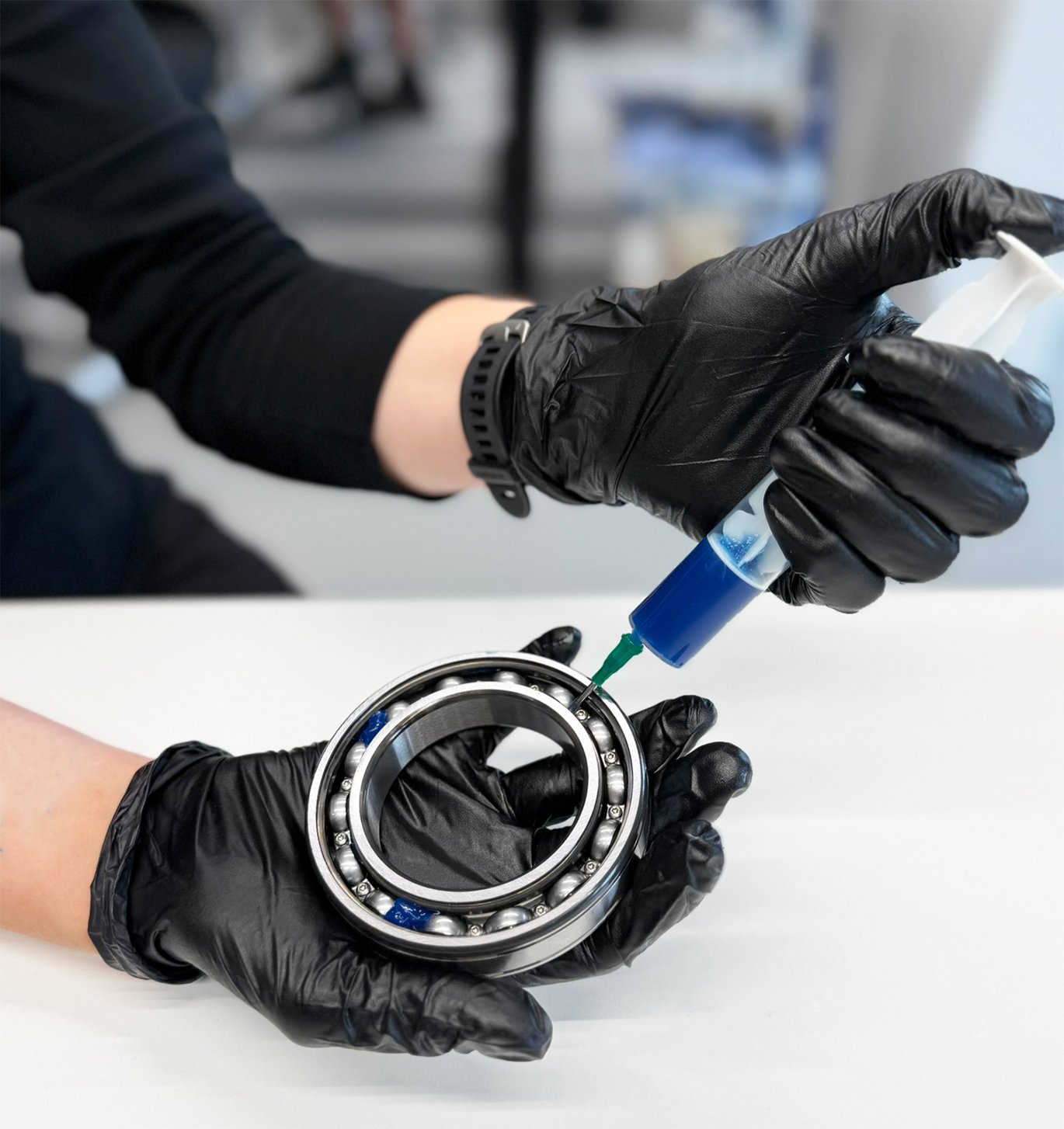Simple bearing monitoring could save industry major environmental costs
A new research and innovation project will develop sensors capable of real-time monitoring of lubrication conditions in bearings. The goal is to reduce pollution and resource waste while paving the way for sustainable lubricants.

They are small, most weigh less than a kilo, and they’re rarely noticed. Yet ball bearings are indispensable components in nearly all industrial machinery – from pumps and cranes to wind turbines and production lines. Still, up to 50 million bearings are replaced every year, often unnecessarily.
Now, a new Grand Solutions project, supported by Innovation Fund Denmark with DKK 20.5 million (EUR 2.8 million), aims to change that. The project will develop a sensor solution that, for the first time, can measure lubrication conditions in real time – allowing industry to extend component lifespan and use biodegradable lubricants without compromising operational reliability.
Grease and green ambitions
“Many tons of lubricant are spilled into the environment every year,” says Associate Professor Morten Opprud Jakobsen from the Department of Electrical and Computer Engineering at Aarhus University. He leads the development of sensors and instrumentation in the project.
“At Aarhus Harbor, one of our partners, the problem is visible to the naked eye. When an automatic lubrication system gives a shot of grease, the excess often falls directly into the harbor. And when machines operate under hot conditions, it melts and runs into the water. Many lubricants contain lithium – a toxic and finite resource,” he explains.
The project’s solution is to monitor the condition of the bearing directly and with high precision – enabling the use of biodegradable, yet untested, lubricants. With accurate data, companies can evaluate how these new greases perform under real-world conditions.
A paradigm shift in industry
Project partner CeramicSpeed sees enormous potential in the technology. Project manager Nicklas Simonsen puts it this way:
“We’re on the verge of a paradigm shift in industrial maintenance. This technology allows companies to optimize lubrication precisely while taking responsibility for the environment – without compromising reliability.”
For industry, the economic argument is strong. Up to 40 percent of all maintenance costs in rotating equipment are due to poor lubrication. Just six grams of grease in a bearing can cause production to stop if worn out – requiring the entire bearing to be replaced.
“With proper lubrication, you can reduce downtime by up to 10 percent,” explains Claus Schwennesen, Maintenance Team Lead at Aarhus Harbor. “That’s good for both the environment and the bottom line.”
Simple, low-cost, and scalable technology
The goal is to develop a sensor system that is cheaper to produce and install than today’s specialist systems and methods. The solution will use wireless communication and mass-produced MEMS sensors to measure conditions close to the bearings – without needing direct contact with the lubricant.
This makes the solution suitable for retrofitting in existing industrial machinery, where many actors lack the resources for major digital transitions.
“We want to create a simple solution that works in practice and can scale widely. That means the technology has to be robust, energy-efficient, and low-cost,” says Morten Opprud Jakobsen. “And that’s precisely the challenge we’re taking on in this project.”
The project will run for four years and brings together partners from both research and industry. It is supported by Innovation Fund Denmark with DKK 20.5 million and has a total budget of DKK 29.2 million.
FACTS
Study type: Grand Solutions project (technology development and implementation)
External funding: Innovation Fund Denmark (DKK 20.5 million)
Collaborators: Aarhus University (ECE and MPE), CeramicSpeed, JIM-TEC, Aarhus Harbor, Axel Christiernsson AB
Contact
Associate Professor Morten Opprud Jakobsen
Department of Electrical and Computer Engineering, Aarhus Univerity
Mail: morten@ece.au.dk
Tel.: +4521367053
